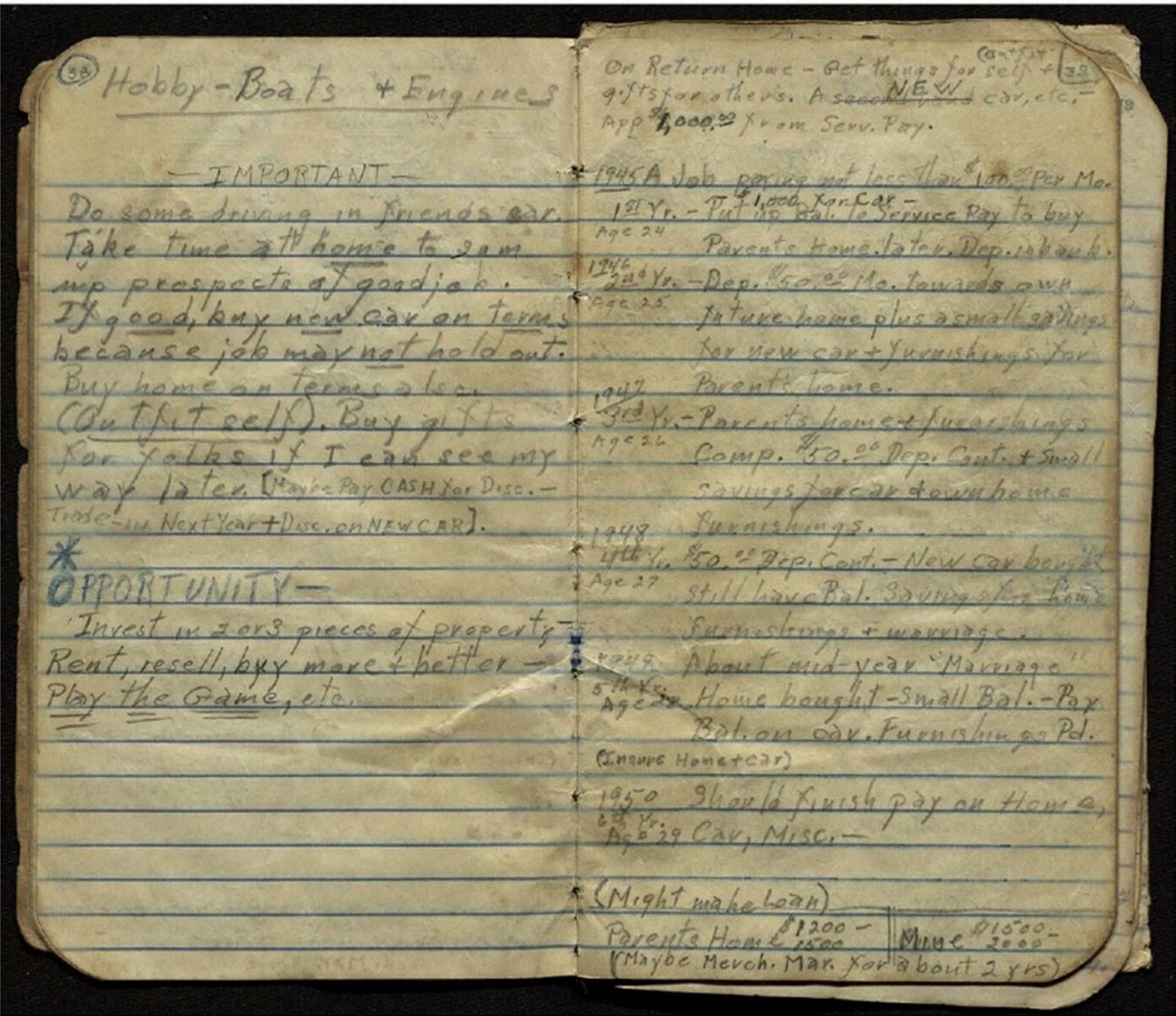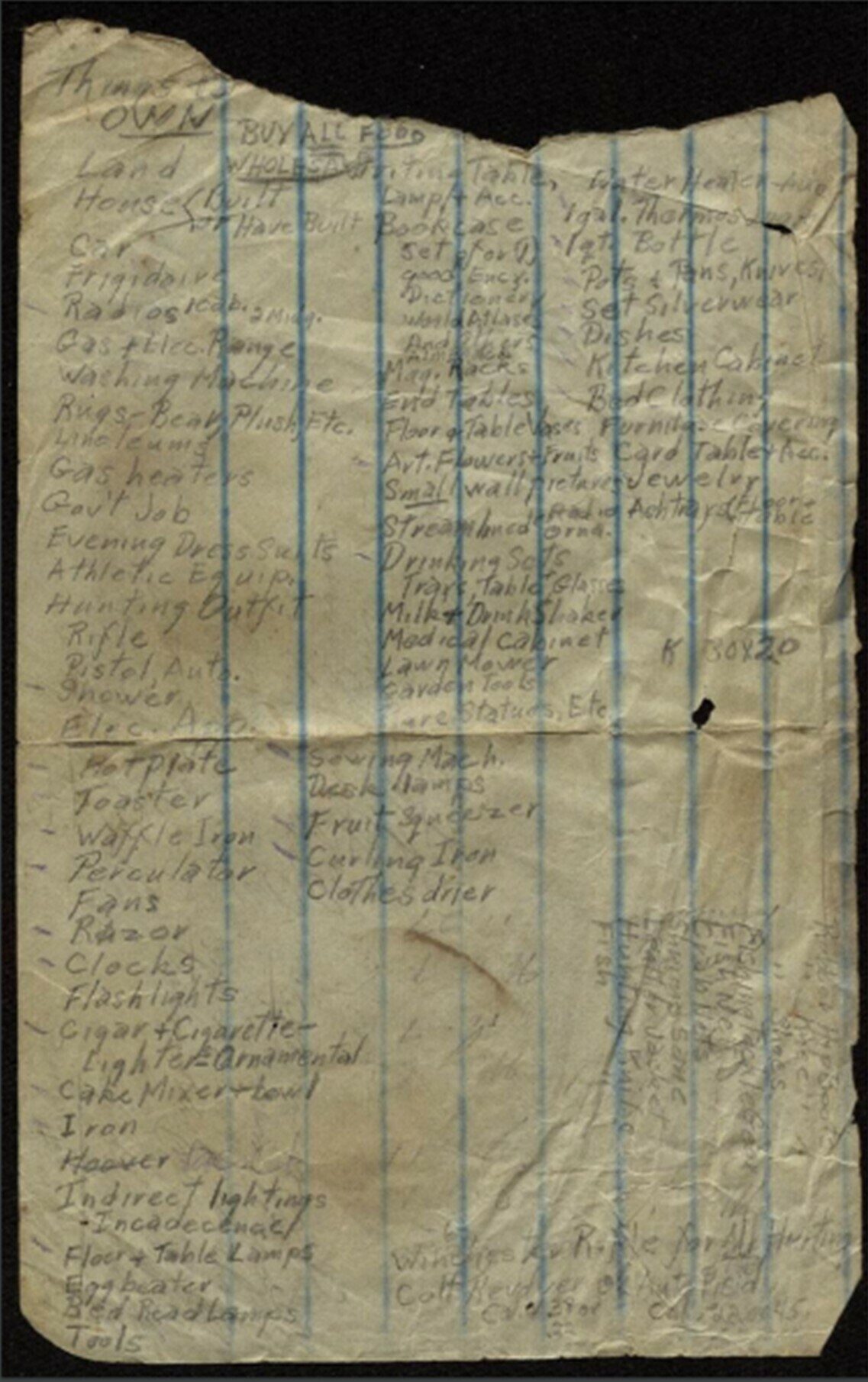The power of a good list
“Self-control is strength. Thought is mastery. Calmness is power”. You would be forgiven for thinking these words were from a modern-day mindfulness expert, or perhaps an Instagram influencer. They would certainly not look out of place on a mug or trendy wall art.
But no, they are found in the notes of an American prisoner of war from the Second World War, published in America in World War Two: Oral Histories and Personal Accounts.
Whilst many of us may be feeling like prisoners in our own homes at the moment, Lionel Bertheaud from New Orleans enlisted in the US Marines straight out of high school, was captured in the spring of 1942 and endured POW camps in the Philippines and Japan for an unimaginable 44 months until liberation in August 1945.
During his internment, Lionel kept an extraordinary array of notes and lists. Now, I love a good list and whilst some of these briefly detail life in the POW camps, key events or transfers to different camps, the ones which caught my attention were lists which would be of little consequence were it not for their context: grocery lists, breakfast ideas, recipes, New Orleans restaurants, Louisiana entertainment spots, book titles, cocktail names, measurements and conversions, household objects…
These are the lists of a man distracting himself from his current circumstances, from fear or boredom, reminiscing about his hometown and the life he could be leading. They are also the lists of a man with a plan. A six-year plan, to be exact:

Lionel Bertheaud’s six-year plan. Image © The National WWII Museum. Further reproduction is prohibited without permission.
- 1st year after returning home, aged 24: Find a job paying not less than $100/month. Put up balance to buy parents’ house and a car.
- 2nd year: Start paying deposit towards own home, new car and furnishings.
- 3rd – 4th year: Continue making payments for purchase and furnishing of parents’ home and own home.
- 5th year: Get married ‘about mid-year.' Insure home and car.
- 6th year: Complete purchase of house and car.
The lists of household objects are ‘Things to Own’. Book titles are listed alongside subjects Lionel is interested in studying and possible post-war career paths. He particularly wants to study “Ultra-Mod. Ideas” in fields as varied as industrial design, architectural drawing, engineering, astronomy, and city planning, as well as take flying lessons, invest in property and learn to dance.
He designs the house he wants to build, from the floorplan to the building materials, decoration and contents, including a fridge, waffle maker, curling iron (presumably for the wife he will find in five years’ time), athletic equipment and ‘rare statues’.

Lionel Bertheaud’s list of household objects to purchase. On the reverse is a recipe for a whiskey sour. Image © The National WWII Museum. Further reproduction prohibited without permission
We are all looking forward to the time when our lives can return to ‘normal’, whatever normal might look like by then, and I know that I personally have ricocheted between an urge to plan for the future and wanting to ostrich the whole situation and just focus on today.
It is humbling to see how somebody in much more horrific circumstances than my own, coped with the uncertainty of his future. He chose to plan his life in minute detail so that he could make the most of his freedom as soon as that was possible.
For Lionel, Thought really was Mastery, and through these lists he was master of his own future.
Lionel Berthaud’s correspondence and notes, alongside the papers of many other prisoners of war, are available in America in World War Two: Oral Histories and Personal Accounts.
About the collection
America in World War Two: Oral Histories and Personal Accounts is out now.
Recent posts

Drawing on materials from Latin American Histories in the United States, this guest blog from Oliver Rosales, Bakersfield College, reveals the origins of the modern immigrant rights movement. Focusing on the amnesty campaigns of the late 1970s, we highlight how Chicano activists, grassroots publications, and cross-border solidarities shaped a pivotal era of Latinx political activism.

The blog highlights American Committee on Africa, module II's rich documentation of anti-apartheid activism, focusing on the National Peace Accord, global solidarity, and student-led divestment campaigns. It explores the pivotal role of universities, protests, and public education in pressuring institutions to divest from apartheid, shaping global attitudes toward social justice and reform.
